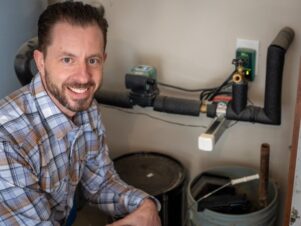Large facilities contain several systems that require regular maintenance and attention to continue to work properly. Despite routine upkeep, sometimes these systems will fail on occasion. When a failure happens, building managers must request services from an appropriate professional to identify the cause and address the problem. With these troubleshooting tips, professionals can determine the extent of the issue and arrange for effective repairs.
Fire Safety Concerns
Fire safety is a key component of large facilities, as it can affect people, structures and systems. Although most buildings are required to have comprehensive fire safety systems in place as a regulatory concern, these systems often do not receive routine testing. Building managers should:
- Conduct fire safety drills regularly and test each component of the system for function
- Look for clogs in the water lines or mineral deposits around the sprinkler heads
- Test smoke extractors for proper suction
- Check fire extinguishers for use dates and replace when necessary
Plumbing Failures
In larger buildings, a plumbing failure can quickly create a disaster. Plumbing problems usually come in the form of leaks and blockages — either can lead to significant water damage within a short period of time. To troubleshoot these issues, plumbers should look for explanations for low water pressure and identify signs of water damage on floors, walls or outside the building. If the source is not immediately apparent, a sewer line camera can allow a plumber to see through the lines with the highest likelihood of a problem. Once the leak or blockage is found, a plumbing professional can fix the leak or clear the blockage.
HVAC Malfunction
HVAC system malfunction is more than an issue of comfort. Lack of ventilation in industrial settings can allow harmful chemicals to accumulate, putting people in the building at risk. HVAC systems need professional maintenance at least once a year to maintain proper function and efficiency. Common HVAC problems include:
- Poor airflow
- Ventilation failures
- Ineffective heating or cooling
- Excessive energy usage
Testing the function of each system can yield several possible causes, such as a faulty motor, dirty coils or a cracked burner. By systematically going through the system, an HVAC technician can determine the cause and provide expert heating system repair.
Elevator Breakdowns
Elevator failure can be a minor inconvenience or a serious problem depending on the cause and extent of the failure. Elevators rely on a system of cables and pulleys, all set to electrical equipment that causes the elevator to raise or lower. A failure at any point in the system can cause elevator speed to change, doors to refuse to open, or the entire system to shut down. Elevators need routine maintenance to confirm correct operation, including load testing. Professionals should test operation of the elevator while it is unoccupied, especially if certain aspects are faulty.
Electrical Outages
Electrical outages can create significant risks for the occupants of the building, depending on the cause. To test the system, professionals should clear the building and evaluate for signs of a loose or damaged wire. If everything seems to be in order, testing the circuits at the panel can help to identify where the outage has happened. A tripped breaker may be relatively simple to fix, while a full outage could be caused by a failure of the municipal power grid. Systematic testing can determine whether the outage comes from a single portion of the electrical system or another cause.
Keeping all the systems running in a large facility calls for regular testing, inspection and repairs from professionals when needed. Building managers should maintain a list of systems and ensure that each one receives yearly maintenance for ideal output and operation. By troubleshooting problems as they arise, professionals can find the cause and minimize damage to the structure or other systems in the building.




Join the conversation: